Labor’s challenges in a changing climate
After a whirlwind start, Anthony Albanese may sense a new national mood but he faces some serious obstacles now.
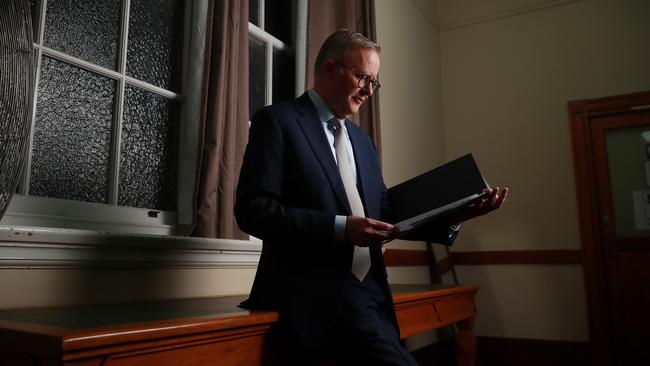
It has been a whirlwind start for Anthony Albanese, sworn in as Australia’s 31st prime minister on May 23, meeting prime ministers and presidents, appointing ministers and shaking up departmental heads, convening national cabinet, travelling to every state and territory, and confronting several crises on energy, cost of living and asylum-seeker boat arrivals.
In an exclusive sit-down interview with Inquirer to mark his first month in office, Albanese says it has been an orderly but decisive transition of power that has resulted in a change in the mind and mood of the nation, and a positive response from other countries. But he is not quite used to being called prime minister just yet.
“I hope, in a way, I never get used to it because I don’t think it should ever be taken for granted,” Albanese, 59, says.
“People who have known me for a long, long time call me prime minister. And that is something that will take time getting used to. But it is respect for the office.
“For me personally, it is an extraordinary change. It is the dynamic of the authority that comes with being prime minister. The pacing – which in part is a product of an election that happened on May 21, a swearing-in on May 23 and (meeting) Quad leaders the next day – meant that the normal period of transition was all over very quickly.”
The fastest transition to a new government has been followed by a transformation in how Australians view their government. Albanese says a demonstrable example was when he signed Australia’s enhanced 2030 Nationally Determined Contribution under the Paris Agreement on climate change witnessed by industry, farming and environmental leaders and also the business delegation he took to Indonesia.
“They were there not for me personally or in a partisan way,” Albanese says. “We were all there for the Australian national interest.”
NSW Premier Dominic Perrottet reflected the national mood when he said the meeting of the national cabinet was “refreshing”. Albanese agrees, saying premiers and chief ministers are “positive about engaging with the commonwealth and with each other to achieve reforms” and an agenda for future co-operation has been outlined.
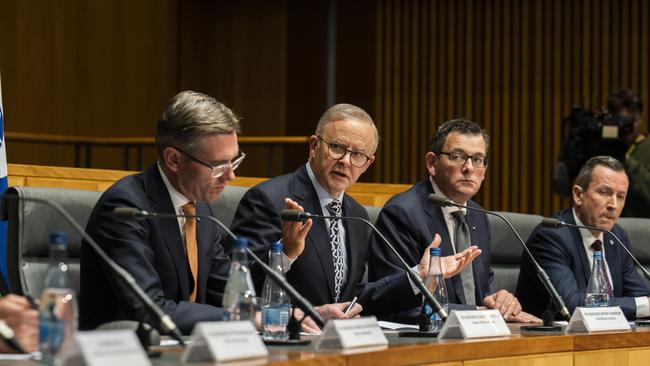
How Australia is viewed by the rest of the world also seems to have shifted. Albanese says the mood at the Quad leaders meeting could not have been more positive when he met US President Joe Biden, Japanese Prime Minister Fumio Kishida and Indian Prime Minister Narendra Modi in Tokyo, or Indonesian President Joko Widodo in Jakarta, or New Zealand Prime Minister Jacinda Ardern in Sydney.
This personal diplomacy has been underscored by Defence Minister Richard Marles and Foreign Minister Penny Wong setting a cracking pace meeting their counterparts in the Asia-Pacific and Indo-Pacific regions.
“The way that we have been received has been perhaps underestimated here in Australia – how big a shift that is seen and how positive the response has been,” Albanese says. So, what has been the message to other nations? “There’s a new government which wants to be a part of global solutions rather than an impediment,” Albanese says. “It is very clear to me that Australia’s standing was being damaged by our failure to take climate change seriously.”
It is a message Albanese will take to the NATO summit in Madrid next week and to the Pacific Islands Forum next month. While emphasising continuity with the Morrison government in condemning Russia’s invasion of Ukraine and support for the AUKUS defence partnership, Albanese will stress a very different position on climate change.
“When it comes to national security issues, Australia, now like the US and like Europe, understands that climate change is a national security issue,” he says. “Energy policy has been impacted by what’s occurred in Russia and Ukraine.”
Climate change, Albanese says, is not just about Australia’s policy settings as it decarbonises its economy and shifts to cleaner and greener energy, but also our contribution to the community of nations. He says climate change is inexorably linked with foreign policy and economic policy.
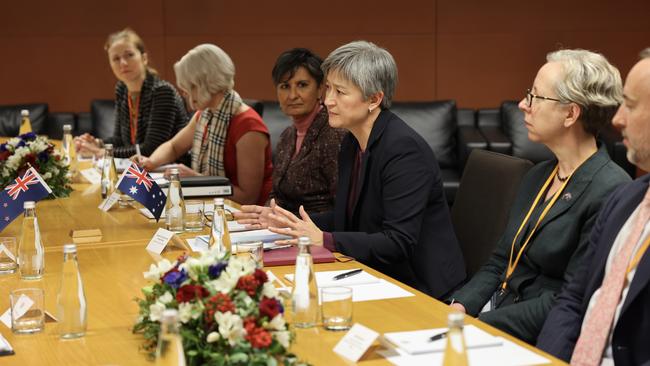
“We live in a globalised economy,” he says. “The pandemic is a reminder that in today’s globalised world, the idea of isolationism doesn’t work. We’re all impacted by it. And hence why our relationships with our neighbours, with major powers, but also with the world, and the perception that Australia is held in is so important.”
The Prime Minister reiterates Labor’s longstanding approach to foreign policy with three pillars: the alliance with the US, engagement with the Asia-Pacific and Indo-Pacific regions, and support for multilateral institutions including the UN. If there is a Labor foreign policy doctrine, this is it.
“The ubiquitous nature of technology is that global economies are all interconnected,” Albanese says. “And that interconnection is part of what gives me a very optimistic view about Australia’s future in that we are located in the fastest growing region of the world in human history. If you look at the growth in our region, it makes the industrial revolution look slow. And so that represents an incredible opportunity, which we can either seize or be captive of.
“That is the link that I see between foreign policy and the national policy approach towards trade, globalism and domestic policy is that the two are absolutely linked … one of the things that the pandemic has done is remind us of the need for self-reliance and resilience as an economy and a society … it all comes together to present a story and an opportunity in the next period if we have a shift in the big economic reform.
“My big critique of the former government is that they just stood still. They argued over energy policy for nine years and didn’t do anything and pretended everything was all OK. They didn’t do anything in terms of promoting proper skills development. What are the skills and jobs that we need for future industries? They clearly neglected what was happening in the region when we see what happened with the Solomon Islands.”
Albanese will meet French President Emmanuel Macron in Paris next week. He notes the cost of the termination of the $90bn submarine contract was negotiated down from $5.5bn to $3.4bn, much lower than what was envisaged to extricate Australia as first revealed in Senate estimates. Albanese says it was essential to repair that relationship from the nadir it sank to under Scott Morrison. “That opens up the opportunity for us as well in terms of re-engagement with European trade agreements,” he says.
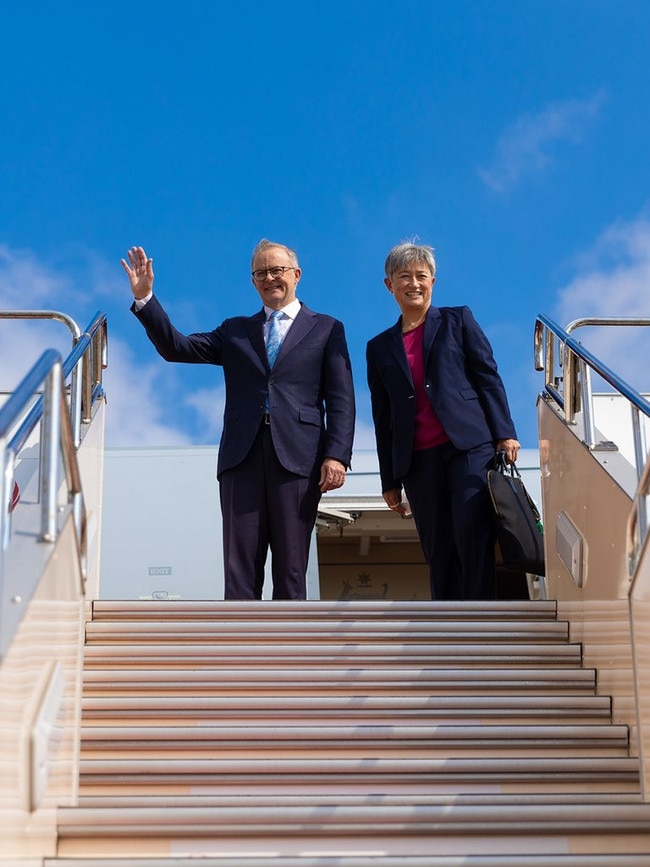
“It is very clear that if you don’t have the support of France as a major country, obviously in Europe but also in our region in the Pacific, that that relationship breakdown was not in Australia’s national interest.”
But a reset of the relationship with China will take longer. There are signs of a potential thaw in relations, including Marles meeting recently with his Chinese counterpart, but Albanese is cautious. China’s assertiveness in the region and trade sanctions remain obstacles. “We live in an era of strategic competition in the region as a result of the rise of China,” he says.
“The relationship with China remains problematic. And what I have said is that China needs to remove sanctions against Australian businesses that are having an impact on the Australian economy but also having a negative impact on the Chinese economy as well.”
The new government faces difficult challenges at home such as: energy supply, reliability and cost; escalating inflation that is eroding the purchasing power of incomes; rising home and business loan mortgage rates; a restart in the people-smuggling trade from Sri Lanka, which is facing an economic crisis; a budget deep in the red with debt set to peak at over $1 trillion; and fears of a global recession. Governments are always tested and judged by events they cannot foresee.
“You will always be faced with unexpected events,” Albanese says. “The key is how you respond to them. We have been measured, we have been diligent, we have taken advice, we have been considered and we have dealt with them.” He adds: “In cricket terms, you deal with the ball that you are bowled, and we have done that.”
He notes how Climate Change and Energy Minister Chris Bowen has worked with energy companies, state and territory ministers, and the Australian Energy Market Operator to deal with supply shortages while also explaining the reforms that are necessary to guarantee future supply, reliability and affordability.
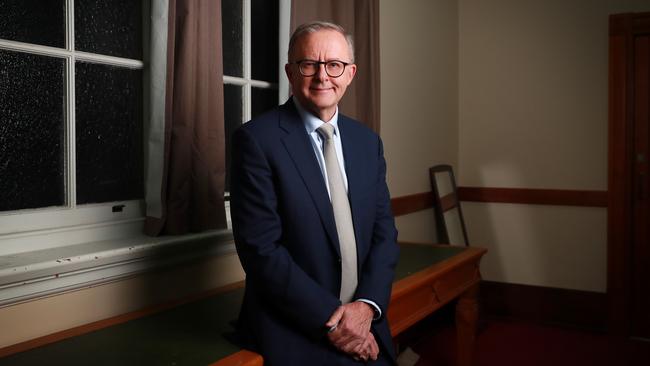
Albanese also notes the engagement of Marles and Wong in the region, and Home Affairs Minister Clare O’Neil’s visit to Sri Lanka to discuss how to deal with the people-smuggling trade. He insists that Labor will be “strong on borders without being weak on humanity” and points to the Murugappan family returning to Biloela in central Queensland.
The Australian Electoral Commission declaring the remaining House of Representatives seats this week is a reminder that Labor secured just 32.6 per cent of the primary vote at the election and a two-seat majority in parliament (after allocating a Speaker). This will shape how Labor governs. Albanese told ministers at their first meeting to continue the discipline they showed during the previous three years and to come forward with plans to implement what they had promised.
“I developed an achievable, pragmatic, program of reform that was about a positive agenda for the future,” Albanese says. “I stuck to the plan while dealing with things that we didn’t see coming such as the emergence of the pandemic. But we dealt with that on the basis of the same principles that I outlined when I became Labor leader: that we would be constructive and put the national interest first.
“We need to, in our period in government, continue to project that positive agenda. I think we can contrast our action of delivering on our promises with what was there before, which was, you know, an announcement but then no delivery that characterises the former government.”
Albanese’s 100-day plan, revealed to The Australian during the election campaign, includes an employment summit with business and unions, and establishing the National Reconstruction Fund and Jobs and Skills Australia.
Labor plans to legislate its climate change targets, family and domestic violence leave, and a federal integrity commission later this year. The 47th parliament will meet on July 26. Jim Chalmers will deliver the budget on October 25.
If implementing these promises and grappling with multiple crises were not enough this term, Albanese is also determined to deliver the Uluru Statement from the Heart with the voice to parliament. Australia becoming a republic is a term two or term three priority. “My priority this term is a voice to parliament and constitutional recognition for First Nations people,” he says. “I can’t envisage a circumstance whereby Australia changed our head of state but we still did not recognise First Nations people in our birth certificate … the priority is constitutional recognition with an enshrined voice to parliament.”
Albanese has previously confirmed that he will live in the Lodge in Canberra. This is appropriate as it is the Prime Minister’s official residence. He has been packing up his Marrickville home and this week a truckload of things went to the Lodge and some to Kirribilli House, which he will use as a Sydney residence. The Prime Minister has already hosted the national cabinet at the Lodge and spent the night – sleeping in John Curtin’s bedroom.
Albanese is mindful of Labor history. It pulses through his veins. Since the election he has spoken with Paul Keating, Kevin Rudd and Julia Gillard, eager for their wisdom and insights. He also has spoken to former Labor leaders, including Bill Hayden. This week, he had an exchange with former British Labour prime minister Tony Blair. Now he is writing his own chapter in history.
“They are all very positive about the new government and how we are going,” Albanese says. “They have been very generous. I will talk with and engage with people who have experience. Our government is a new one in terms of one month, but I feel as though we have been there for longer. It has been a long month.”


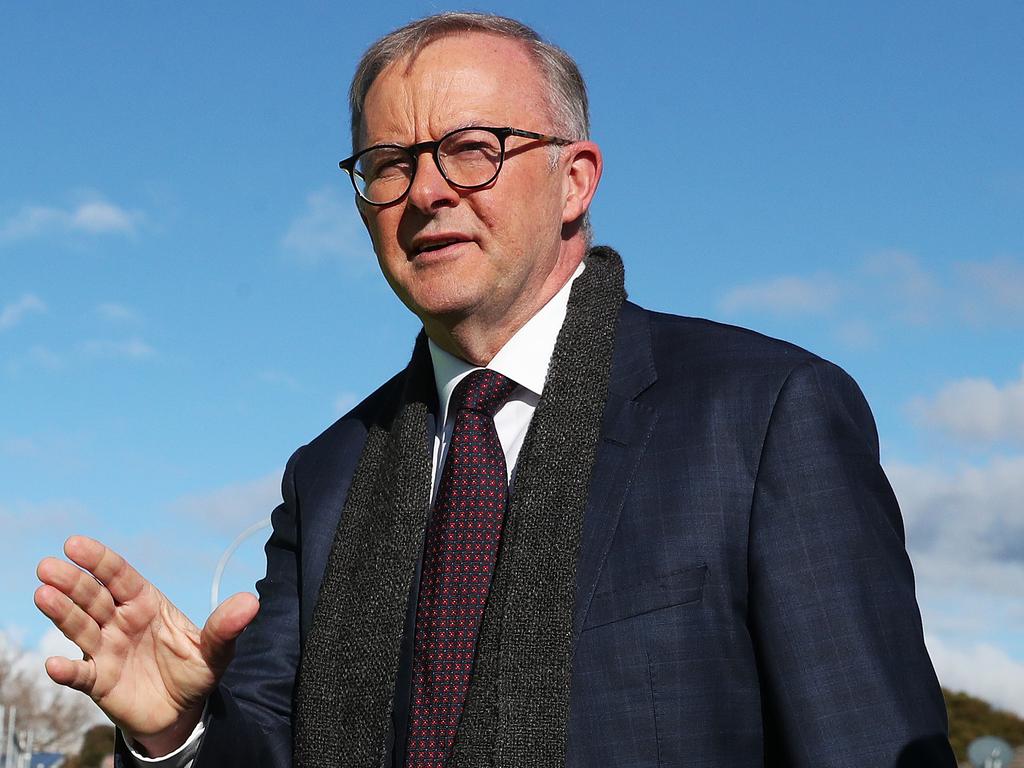
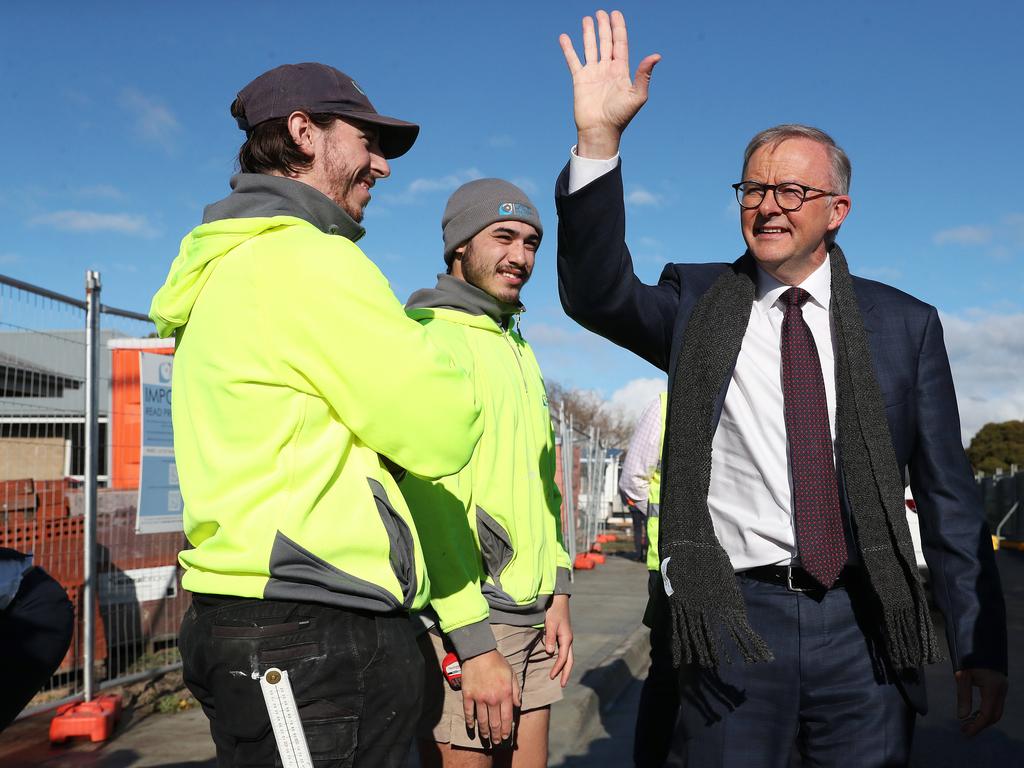
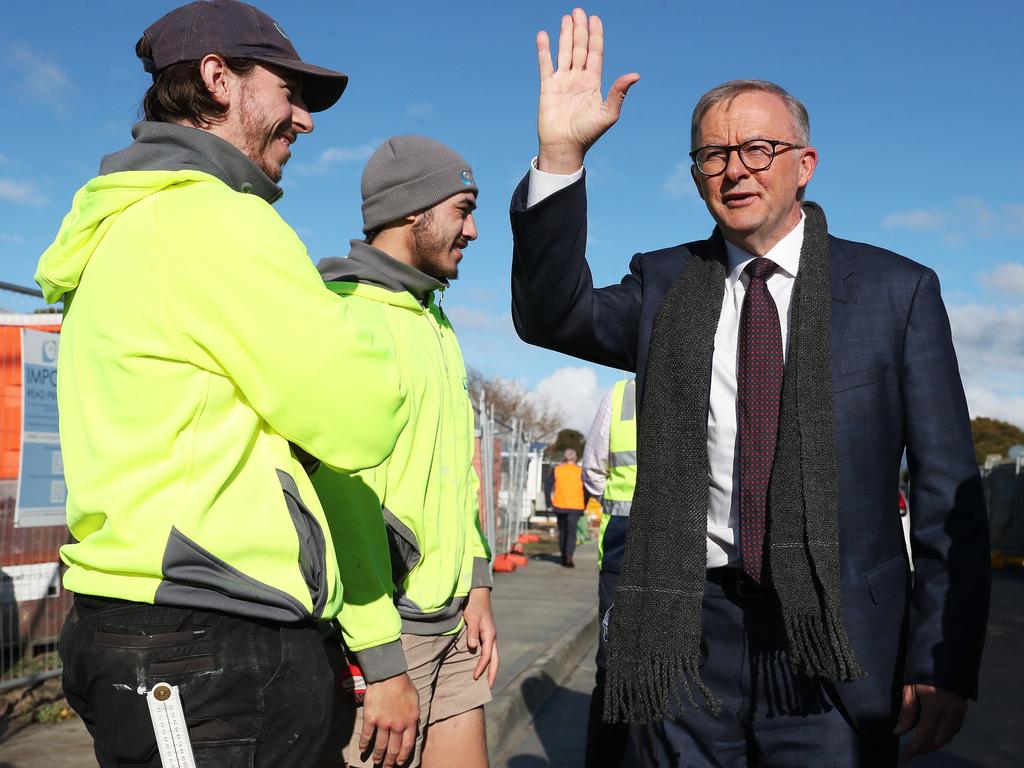
To join the conversation, please log in. Don't have an account? Register
Join the conversation, you are commenting as Logout